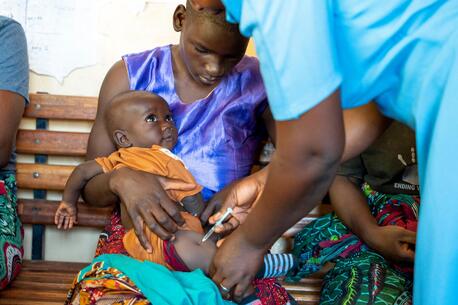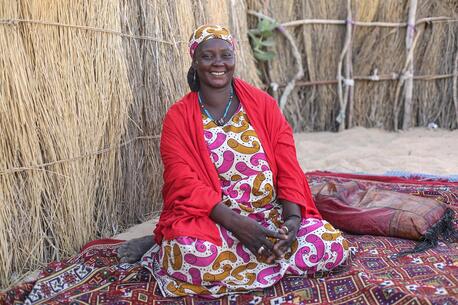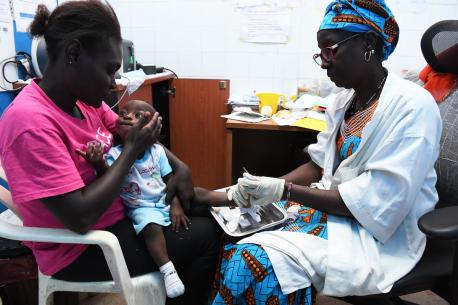
How UNICEF Helps Mothers in Côte d'Ivoire Stay Vigilant Against HIV
Eliminating the fears that come with being pregnant and HIV positive.
An important part of UNICEF's mission is to make sure that vulnerable women get the health care and support they need during pregnancy and childbirth. That includes early testing and treatment for HIV — to protect the mother's life, and her baby's.
UNICEF's efforts — to encourage women to seek prenatal care, get tested for HIV and, if positive, begin therapy with antiretroviral drugs (ARVs) — have helped reduce HIV prevalence in Côte d'Ivoire and other countries where risk of infection remains high.
In Côte d'Ivoire, ARVs are free and accessible to anyone who needs them, and the cost is covered by the government. And testing positive for HIV is no longer a death sentence. Another goal UNICEF is working toward: removing the stigma that often comes with a diagnosis, to encourage women who may have been exposed to seek help.
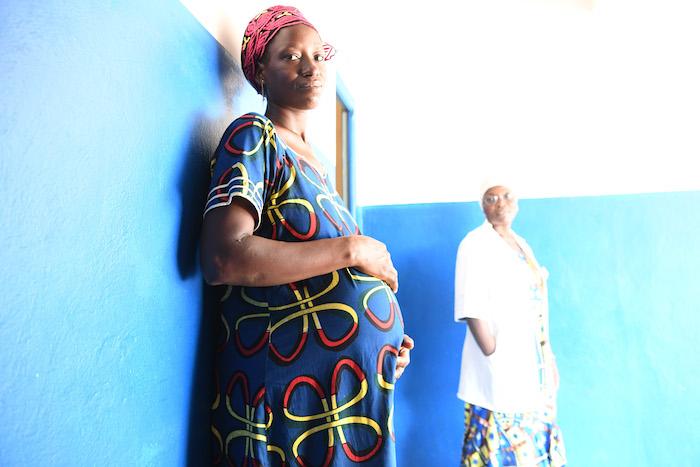
Doumbia, photographed while waiting for her pre-natal checkup at a UNICEF-supported health center in Odienné, Côte d'Ivoire, remembered learning she was HIV positive when she was pregnant with her third child. She received treatment and her son later tested negative. Seven months pregnant with her fourth child, she said, "I am not afraid anymore." UNICEF works with partners all across Africa to ensure that pregnant women with HIV are treated to prevent mother-to-child transmission. © UNICEF/UN061602/Dejongh
Doumbia, who is HIV positive, went to a UNICEF-supported health center in Odienné, Côte d'Ivoire, for her prenatal checkups while pregnant with her fourth child. She remembered learning of her HIV status after being tested while pregnant with her third child two years before. "I cried and I was afraid, but then the nurse told me to take the medication they prescribed and I did," she told UNICEF. After her son was born, he tested negative for HIV. Seven months into her fourth pregnancy, she said, "I am not afraid anymore."
Testing for HIV is a lot easier now, and can be done at most clinics as part of a routine checkup. Previously, parents would have to wait until the baby was 18 months old, and getting the test results would take weeks. "That's an agonizingly long time to wait to find out whether your baby needs to be treated for HIV," says Amanda Reffsin, who covers these issues as a member of the UNICEF USA global programs and humanitarian response team. "And we know with earlier treatment comes a significantly higher chance of survival." Without prompt treatment soon after birth, one-third of children living with HIV will die by age 1, and half by age 2.
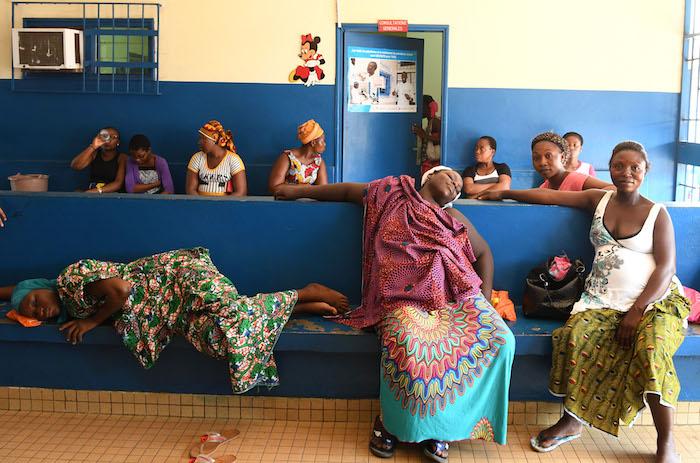
Pregnant women waiting for their prenatal consultations at a UNICEF-supported health center in Gonzagville, Abidjan. © UNICEF/UN061407/Dejongh
During a recent visit to Port Bouet Hospital, about an hour's drive outside Abidjan, Côte d'Ivoire's major urban center, Reffsin was able to observe firsthand these improvements to the process — a significant advocacy win for UNICEF and its partners. She recalls sitting quietly with a young mom who was holding her baby in her lap while a clinician drew blood from the baby's foot.
"It took five minutes," Reffsin said. "When the results came back — the baby had tested negative — I saw the mom's face immediately soften and her body relax. It really moved me, thinking about the role that UNICEF has played in all this, helping to put that mom's mind at ease. Many more clinics are equipped to do this now."
Across the world, women have disproportionately borne the impact of HIV, as caregivers and recipients of care. In sub-Saharan Africa, the region with the greatest number of people living with HIV, 60% of people living with HIV are women. Adolescent girls and young women are particularly impacted, and without effective prevention of HIV, they are likely to pass along the virus to their babies, continuing the cycle of infection to the next generation. In Women: at the Heart of the HIV Response for Children, UNICEF examines HIV and AIDS across the lifecycle — in pregnancy and infancy, childhood and adolescence — and the important role of women in keeping children protected.
UNICEF's work in HIV is just one way the organization strives to improve maternal health for vulnerable women. UNICEF also supports public awareness campaigns urging women to see a doctor while pregnant and to deliver at a facility with a skilled birth attendant — both of which are key to improving the odds of a safe and healthy birth. And UNICEF backs "train the trainer" programs aimed at enabling health providers to manage life-threatening complications such as postpartum hemorrhage (excessive bleeding). PPH is both preventable and treatable, yet the condition affects 14 million women worldwide every year, with 99% of cases occurring in developing countries. Severe bleeding after birth is the largest direct cause of maternal deaths.
When a mother survives and thrives, her children are more likely to stay healthy, finish school and reach their full potential. Support UNICEF's lifesaving programs for vulnerable mothers and children.
Top photo: A clinician tests a baby for HIV at a UNICEF-supported hospital in Port Bouet, a suburb of Abidjan, Côte d'Ivoire. The result: negative. UNICEF works with national and district governments and other partners across Côte d'Ivoire to make HIV testing and treatment routine for pregnant women, helping to prevent mother-to-child transmission. A new testing method is also expediting treatment for babies who test positive, drastically improving survival rates. © UNICEF/UN0265859/Dejongh

